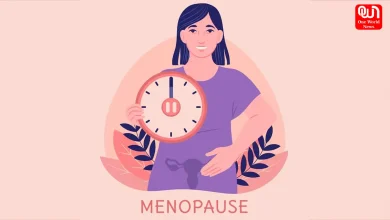10 Psychological Signs of an Unhappy Person You Shouldn’t Ignore
Learn the key psychological signs of an unhappy person, from emotional withdrawal to chronic fatigue, and how to support them effectively.
10 psychological Signs of Unhappiness According to Psychology and How to Address Them
Everyone has action signs, expressions, and behavior in which happiness looks like such; the opposite of happiness manifests itself in different ways in the psychological and behavioral patterns of a person. Understandably, the short-lived sad moments that everyone experiences now and then cannot affect mental and physical health as much as chronic unhappiness can. Recognizing the signs can help to offer a little support to such people.
1. Negative Thoughts Persistent
The people who are unhappy are the ones that tend to look life negatively. Failures of the past keep yelling in the ears and, simultaneously, fears for the future ring out incessantly from within along with difficulty in seeing anything good about the present. Much more, negative thought patterns may spiral into anxiety and sometimes depression that enter them into a sense of no way out from unhappiness.
Read more: Step Into Health: Celebrate National Walking Day and Its Benefits
2. Isolation
One of the signs, very possibly one of the strongest signs, of an unhappy person is isolation. It is hiding from social life, frequent cancellation of plans, and yearning to be alone more than with loved ones. Withdrawal is usually due to lack of energy, low self-esteem, or the fear of becoming a burden.
3. Cheerlessness
Sometimes unhappy people do not bother doing tasks they once enjoyed because they do not have motivation. Irrespective of whether the task is in the office, pursued as a hobby or a personal target, it may evoke no concern, making it difficult for the individual to push him/herself to progress with daily activities. However, this definitely leads to reduced productivity and an aggravation of emotional disturbance.
Read more: Rid Your Kitchen of Cockroaches with This Homemade Chemical-Free Remedy
4. Sleep Problems and Chronic Fatigue
Mental distress manifests in the physical body through constant feeling of being exhausted. An unhappy person has sleepless nights and finds ways of sleeping too much or just has state changes in sleep. Sleep problems would add to the fluctuating excitement, irritability, or reduce cognitive functioning.
5. Very Frequently Annoyed and Mood Changes
Perhaps they would be just about ready to become furious or annoyed with very minor incidents. Their emotional state fluctuates; thus being unpredictable in conversations with and among people. Ignored emotions brought about stress contribute to this annoyance.
6. Everything that was once pleasurable loses its delight.
A good signal of really deep unhappiness is to stop enjoying doing once-favorite things. Music, art, games, or even socializing can seem unfulfilling for them. This inability to find pleasure in activities formerly enjoyed is a symptom characteristic of depression.
7. Overthinking and Self-Doubt
Unhappy people tend to question how they see what really happened in events; usually, that is when they reflect on their own actions and decisions. Such people may seek reassurance constantly, and yet not feel satisfied. And finally, most of the time, overthinking might make them do self-criticism, thus making them feel worthless and incapable.
8. Emotional numbness
Some unhappy people freeze emotionally rather than show sadness or frustration. They may seem indifferent, detached, or unresponsive. This numbing often serves as a buffer to deeper pain.
9. Bourgeois Complaints Without Medical Cause
Headaches, body aches, digestive problems, and many other health complaints are attributable to unhappiness. Stress and emotional turmoil can also tend to immunize the body from these chronic states of discomfort: “Most of the discomforts are chronic.”
10. Increased dependence on unhealthy coping mechanisms
Unhappy people may indulge themselves in binge eating, drinking alcohol, smoking, or other vices to escape their emotions. These coping mechanisms relieve them temporarily, but eventually worsen overall well-being in the long term.
Last Words
Recognizing these signs can lead toward supporting a struggling individual with unhappiness. Open conversations, self-care, and professional help would make a significant impact in the road toward mental well-being.
We’re now on WhatsApp. Click to join.
Like this post?
Register at One World News to never miss out on videos, celeb interviews, and best reads.








